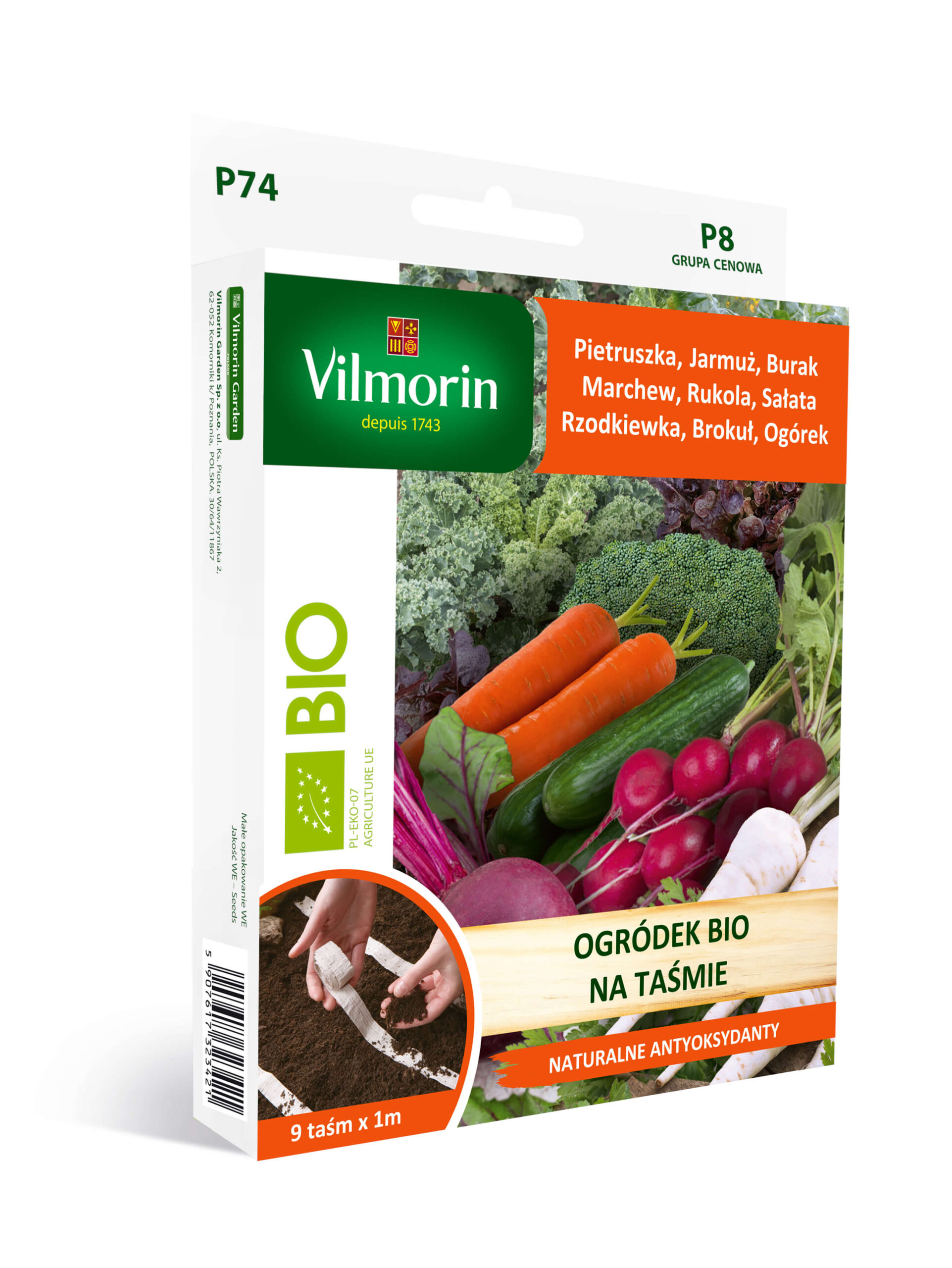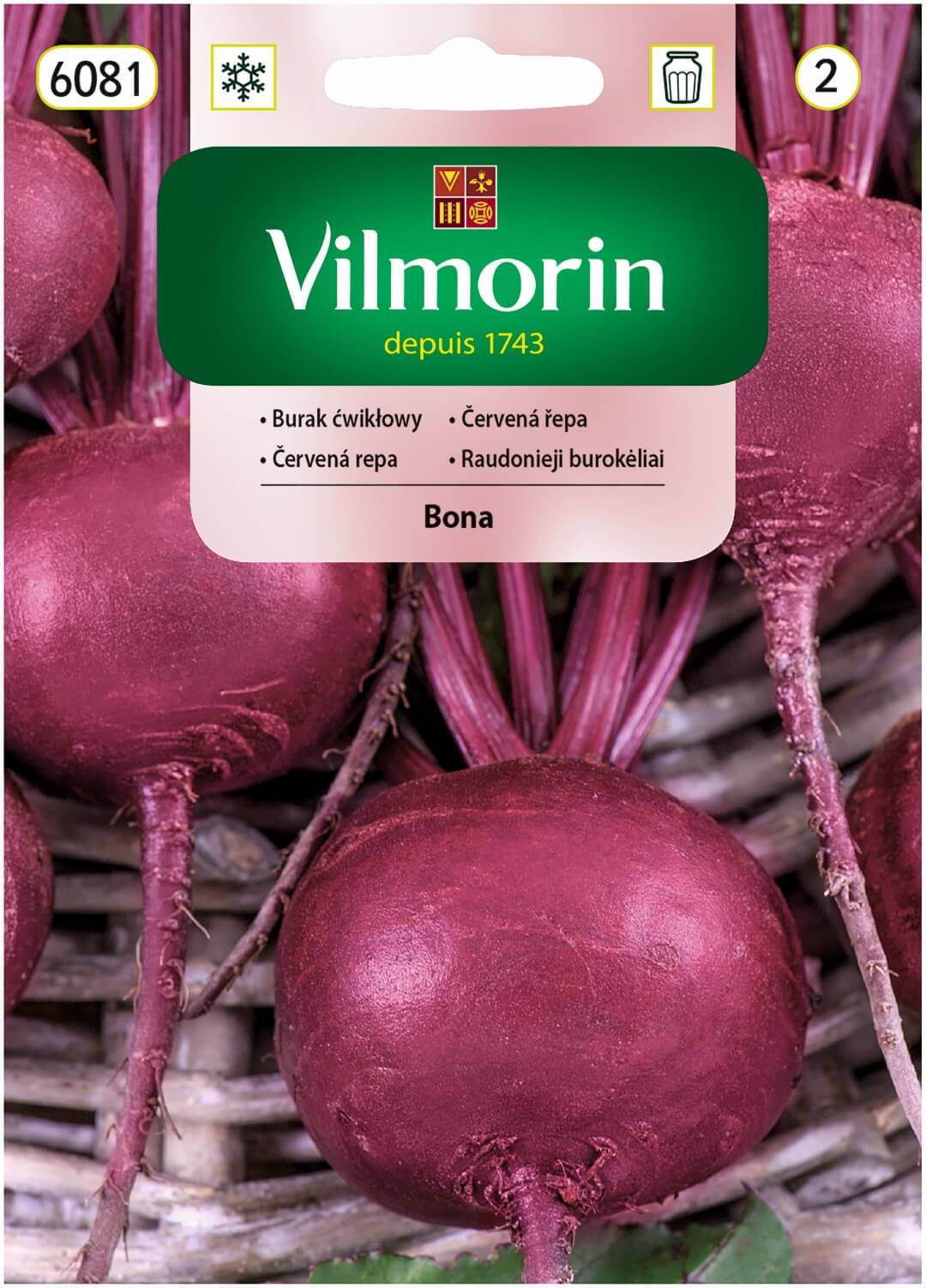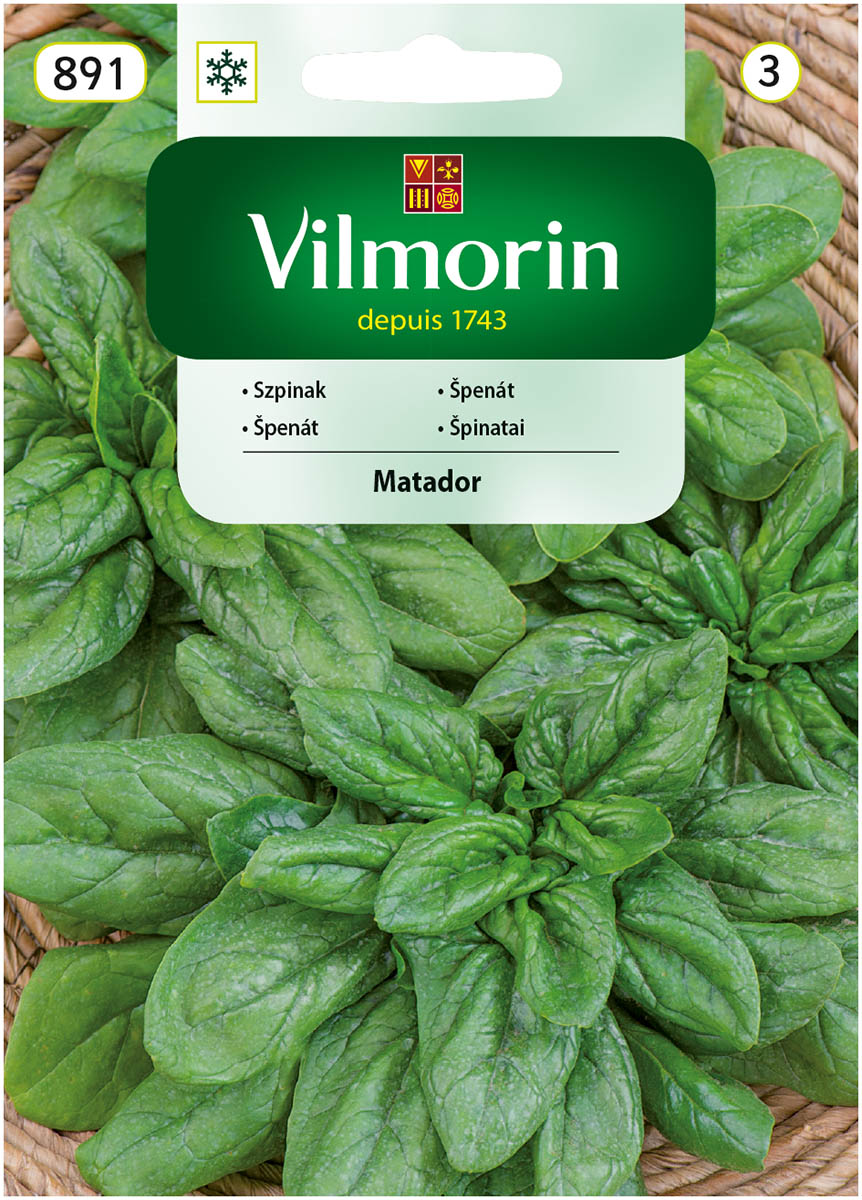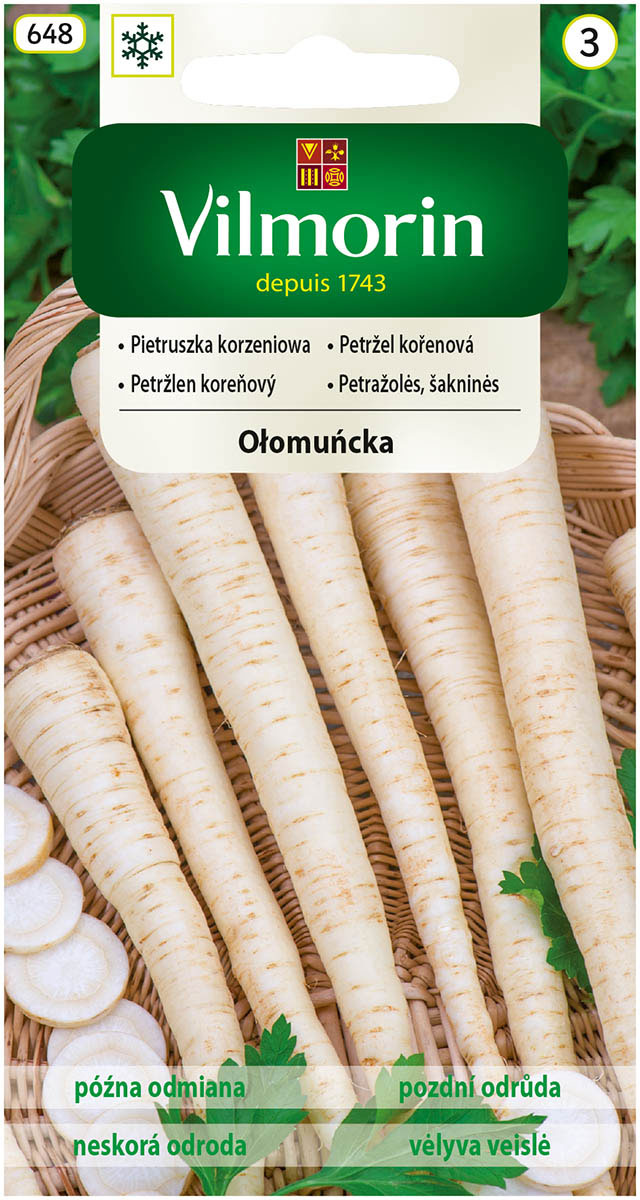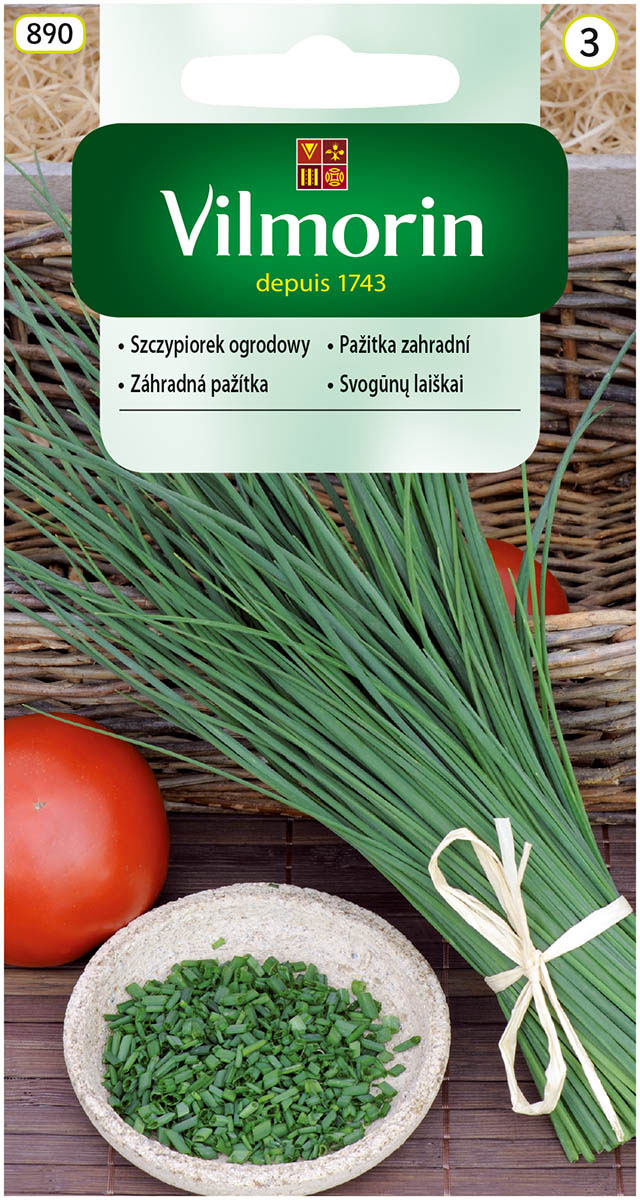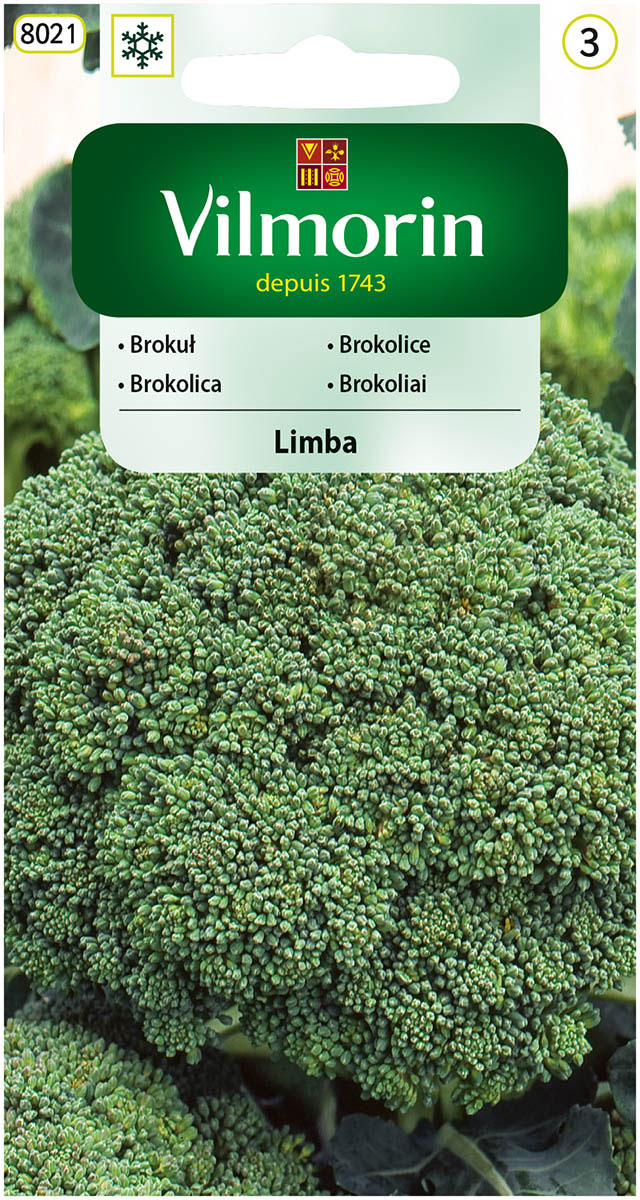Passionate's zone:
Natural Antioxidants
Natural Antioxidants
The antioxidants from the vegetables reduce the risk of chronic diseases by limiting oxidative stress. WHO experts’ recommendations, based on clinical research, show the beneficial effects of antioxidants on the proper functioning of the human body and the long-term health.
There’s a convenient way to gain these benefits. Vilmorin’s seed tapes allow for a quick and easy way to set up a vegetable garden.
BIO seeds come from organic farms. No chemical pesticides or synthetic fertilizers are used during the growth of the parent plants. This ensures we consume products that support our health.
The set includes nine one-meter tapes with seeds of vegetables such as root parsley, radish, carrot, beetroot, rucola, Red Salad Bowl lettuce, kale, broccoli, and cucumber.
After placing the tape in the ground and covering it with soil, water it thoroughly. The tapes are environmentally friendly and biodegradable, made from material dissolving in the soil.
Note: Do not let the tape dry out!
Green Diet
Green vegetables rich in folates, carotenoids, vitamins K, C, and B, as well as calcium and iron, play a crucial role in preventing nervous system defects, cardiovascular diseases, cancer, and neurodegenerative diseases like Alzheimer’s.
There’s a convenient way of getting all these benefits. With Vilmorin seed tapes, you can quickly and easily set up a vegetable-herb garden.
BIO seeds come from organic farms. No chemical pesticides or synthetic fertilizers are used during the growth of the parent plants. This ensures we consume products that support our health.
The set includes nine one-meter tapes with seeds of vegetables like: lettuce, radish, basil, chives, Bright Lights beetroot, spinach, lamb’s lettuce, dill, and leaf parsley.
After placing the tape in the ground and covering it with soil, water it thoroughly. The tapes are environmentally friendly and biodegradable, made from material dissolving in the soil.
Note: Do not let the tape dry out!
The Healthiest Vegetables in the World
The healthiest vegetables in the world are those rich in nutrients, vitamins, minerals, and fiber. Including these vegetables in your daily diet promotes overall health and well-being. Consuming the variety of vegetables is pivotal for obtaining full health benefits. Below are some notable examples.
Watercress is known for its distinctive taste and numerous health benefits. Watercress is rich in vitamins (especially C, A, and K) and minerals (iron, calcium, magnesium, and potassium). It has anti-inflammatory properties, which may help reduce inflammations in the body. Watercress also contains fiber which supports digestive health. Regular consumption can help with heart health by reducing cholesterol and blood pressure. It can be eaten raw or added to salads, soups, smoothies, and sandwiches. As with any plant, moderate consumption is important, and those with specific conditions should consult a doctor before including it in their diet.
Cabbage has multiple health benefits. It’s a low-calorie vegetable rich in vitamins (such as C, K, and B-complex), minerals (potassium, magnesium, calcium), and fiber. High fiber content aids digestion, regulates bowel function, and helps prevent constipation. Vitamins and antioxidants in cabbage may strengthen the immune system, helping to fight infections. Regular cabbage consumption may lower cholesterol and blood pressure, enhancing heart health. Its low-calorie content and high fiber make it an ideal vegetable for weight management. It is worth remembering that to obtain the desired effects, cabbage should be consumed as a part of a well-balanced diet.
Beetroot has multiple health benefits. It contains nitrates that can help lower blood pressure by dilating blood vessels. Rich in antioxidants and detoxifying agents, it supports liver functions and purifying the organism. Beetroots are rich in fiber which supports health of the digestive system and regulates blood sugar levels. High iron content may influence red blood cell production, beneficial for combating anemia. Beetroot can be eaten raw, baked and boiled, or drunk as a juice. However, people with certain conditions, such as kidney stones, should limit their intake of beetroots due to the high oxalate content.
Spinach is a leafy vegetable full of nutrients with many health benefits. It contains vitamins (A, C, K, and B-complex), minerals (iron, magnesium, calcium), and fiber. Antioxidants like lutein and zeaxanthin may support heart health by reducing inflammation and lowering cholesterol. Spinach’s vitamin K is vital for bone health. Spinach may help stabilize blood sugar, which benefits those with diabetes. It can be enjoyed raw or as a cooked ingredient in a variety of dishes.
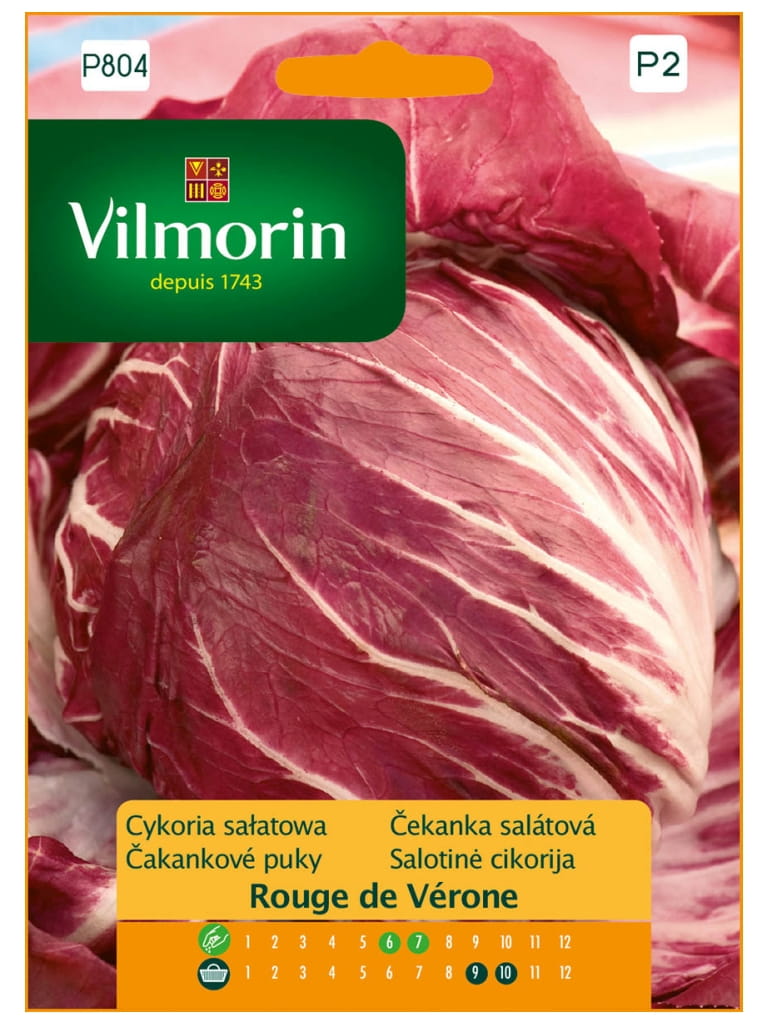
Chicory is a plant which leaves are very often used in salads. It is low-calorie, making it ideal for weight management. Its high fiber content aids digestion and delivers satiety. Chicory provides vitamins (like A, C, K) and minerals such as potassium, calcium, and magnesium, supporting immune and bone health. Regular chicory consumption can be beneficial for overall health, although consulting a healthcare professional is always recommended for any dietary changes.
Lettuce is a popular leafy vegetable with many health benefits. Low in calories, lettuce is perfect for weight-loss diets. Its high-water content helps with body hydration. Fiber in lettuce supports digestion, bowel regulation, and weight management. Rich in vitamins A, C, K, and some of B-complex, also minerals like potassium and calcium, lettuce supports general well-being and immunity. It is worth to include lettuce in the diet for its overall health benefits. It can be used in salads, on sandwiches, or in smoothies.
Root Parsley is a plant with multiple health benefits. Parsley is rich in vitamins, especially vitamin C and vitamin A, which act as antioxidants and help neutralize free radicals. Thanks to its fiber content, parsley aids digestion and regulates bowel function. Root parsley can support the elimination of excess fluids from the body, which is beneficial for the swelling and the kidney issues. Its high vitamin content, particularly vitamin C, strengthens the body’s natural defense mechanisms. Parsley provides many valuable nutrients, such as iron, potassium, calcium, magnesium, and vitamins K and B. Its low-calorie content and high fiber make it helpful in weight-loss diets. Root parsley can be used in the kitchen, added to soups, salads, stews, or baked dishes. However, it is worth remembering that excessive consumption of parsley, especially its leaves, may have undesirable effects, particularly for pregnant women. As with any plant, moderate consumption is pivotal.
Chives is a popular plant used in both: cooking and natural medicine. Chives is rich in vitamin C and other nutrients that can help strengthen the immune system. It is a source of fiber, which contributes to improved intestinal motility and better digestion. Due to its sulfur content, chives may have antimicrobial properties, helping to protect against infections. Chives provide vitamins A, C, and K, as well as minerals like iron, calcium, and magnesium, which are essential for overall health. It may also help reduce inflammation in the body, which is beneficial for various chronic conditions. Regularly adding chives to your diet not only enhances the flavor and aroma of the dishes but also has a lot of the positive health effects.
Kale is a leafy vegetable gaining popularity due to its numerous health benefits. It is rich in vitamins A, C, and K, as well as various B vitamins. Kale also contains minerals like iron, magnesium, potassium, and calcium. With its bioactive compounds, kale may have anti-inflammatory effects, which benefit heart and immune system health. Eating kale may help lower cholesterol and blood pressure, supporting heart health. High in vitamin C and other nutrients, kale can also boost immune function. Adding kale to your diet is a simple way to increase the nutritional value of meals. It can be enjoyed raw (in salads), cooked, fried, or added to smoothies. However, those with thyroid issues should consult a doctor before consuming large amounts of kale, as it contains goitrogens, which may affect thyroid functions.
Arugula is a green plant with many health benefits stemming from its rich nutrient profile. It provides vitamins A, C, K, and B-complex and minerals like calcium, potassium, and magnesium, which are vital for the bone health and circulation. With its fiber content, arugula may aid digestion and support a healthy gut flora. Low in calories, arugula is an excellent addition to the diet of those mindful of their weight. It can be used in salads, smoothies, or as an addition to various dishes. Nutrients like potassium and fiber in arugula can help lower blood pressure and promote heart health. Regularly consuming arugula as part of a well-balanced diet may improve overall health. Remember that a varied diet is essential for supplying your body with all the necessary nutrients.
Broccoli is a vegetable popular for its health benefits. It is a source of various vitamins and minerals, including vitamins C, K, A, folate, potassium, and fiber. With its high vitamin C content, broccoli can support the immune system, helping the body fight infections. Fiber, potassium, and antioxidants in broccoli may lower cholesterol and improve heart health. Fiber supports digestion and regular bowel movements, being very beneficial for digestive health. Including broccoli in your diet may offer numerous health benefits. It can be enjoyed raw, steamed, roasted, or as an ingredient in various dishes.
Pumpkin is a vegetable with many beneficial health effects. It provides vitamins (especially A, C, and E), minerals (like potassium and magnesium), and fiber. Vitamin A is important for eye health, and vitamin C supports the immune system. Pumpkin contains carotenoids, which act as powerful antioxidants, helping protect the body from oxidative stress and reducing the risk of many chronic diseases. Low in calories and high in fiber, pumpkin can aid in weight management by promoting a sense of fullness. Potassium in a pumpkin may help regulate blood pressure. Additionally, healthy fats in pumpkin seeds benefit cardiovascular health. Pumpkin contains compounds that may support skin health and offer anti-aging effects, with its natural moisturizing properties also valued in cosmetics. Pumpkin can be enjoyed in various forms—soups, salads, baked dishes, or desserts. Including it in your diet allows you to engage in its health benefits.
Onion is a vegetable with many health-promoting properties. With its high vitamin content, particularly vitamin C, onions support the immune system, potentially aiding in infection defense. Onions may help lower cholesterol and blood pressure, reducing the risk of the heart diseases. Onions have antibacterial and antiviral properties, which may help protect the body against various pathogens. However, some people may be sensitive to onions, as it can cause digestive issues. It’s always best to tailor your diet to individual needs and consult a doctor if in doubt.

